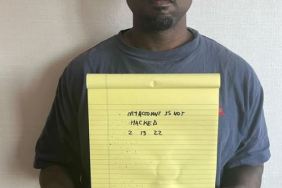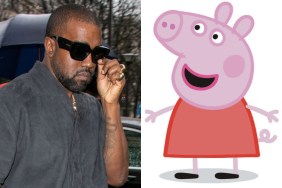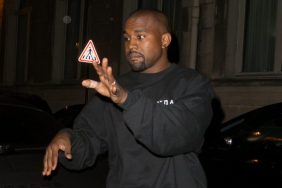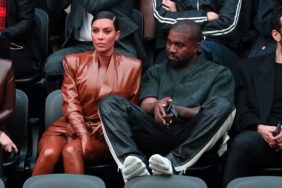Kanye West released The Life of Pablo on Saturday after a ridiculous series of half-starts, false promises and a Kardashian-infused event at Madison Square Garden, and after all that it’s almost a disappointment that the album is so damned fantastic. But as with all things Kanye, the experience isn’t without turmoil and controversy. In addition to confessing that he’s “53 million dollars in personal debt,” asking Mark Zuckerberg in a Twitter barrage to “invest 1 billion dollars into Kanye West ideas,” ‘Ye also announced that he would hold off selling his album, which was previously available for download on his website, and keep everything exclusively on Tidal for the foreseeable future.
My album will never never never be on Apple. And it will never be for sale… You can only get it on Tidal.
— KANYE WEST (@kanyewest) February 15, 2016
While the terms of Kanye’s deal with Tidal are unclear, the shenanigans in play are obvious. Keeping the album off streaming services would drive people to spend directly on Kanye’s own site, lessening our need to see him shamelessly begging billionaires and declaring himself the modern-day Disney.
The Tidal music service was described at the onset in what amounted to a marble-mouthed circlejerk of self-congratulatory rhetoric about revolutionary industry change. None of that actually took place over the year since its inception, instead delivering a handful of glitter in the face as your favorite headliner goes for your wallet.
Case in point? Kanye West’s new album. Charging people $20 a month for good sound and non-exclusive HD music videos about two decades after the world stopped giving them a central marquee is outrageous enough in the age of Spotify. But fans are asked to pay an additional $20 to hear The Life of Pablo. Even worse, thousands are paying for the album and not receiving it. So Tidal is robbing customers.
With or without the Pablo crisis, the service is painfully flawed in both search functionality and streaming capability. But thanks entirely to West’s efforts (he pulled the album from his own site and implored fans to sign up), Tidal has gone to the top of the App Store chart since he urged “all music lovers” to subscribe. The app quickly became the most popular download for iPhones, and was number 30 in the App Store’s “Top Grossing” section.
Man thank you so so so much everyone for signing up to Tidal. Tidal is now the number one app in the world!!! pic.twitter.com/O3r9DkX03R
— KANYE WEST (@kanyewest) February 15, 2016
These numbers, of course, are falsely inflated. There’s no telling how many trial subscriptions, which kicked off specifically for access to Pablo, will turn into legitimate customers – particularly with the news that Tidal is randomly charging people for the album even after they’ve cancelled.
Lily Allen was one of the early critics of Tidal, offering a sensible argument: “I love Jay Z so much, but Tidal is [so] expensive compared to other perfectly good streaming services… He’s taken the biggest artists & made them exclusive to Tidal… people are going to swarm back to pirate sites in droves sending traffic to torrent sites.”
She’s right. Those uninterested in subjecting themselves to Tidal’s credit card grab have found a myriad of other options to acquire Pablo. We’re living in an era where exclusivity is an ignorant delusion. Piracy cannot be stopped, no matter what kind of encryption, watermarks or other DRM schemes the music industry comes up with. Take it all away and we’ll resort to trading cassette tapes once again. Even Kanye and his Tidal-owning buddy Jay Z cannot stop progress.
Producer legend Steve Albini has laughed off the idea of Tidal, saying services like it are “deluding themselves”.
“The internet provides access to materials and things,” he continued. “Creating these little streaming fiefdoms where certain streaming services have certain artists and certain streaming services have other artists is a crippled use of the internet. If the internet has demonstrated anything over the years, it’s that it has a way of breaking limitations placed on its content.”
Kanye may be defibrillating Tidal enough to keep it in the headlines until Rihanna’s next video “exclusively” drops on the service, but he’s doing nobody any favors in the act. Aside from Jay Z, of course.







